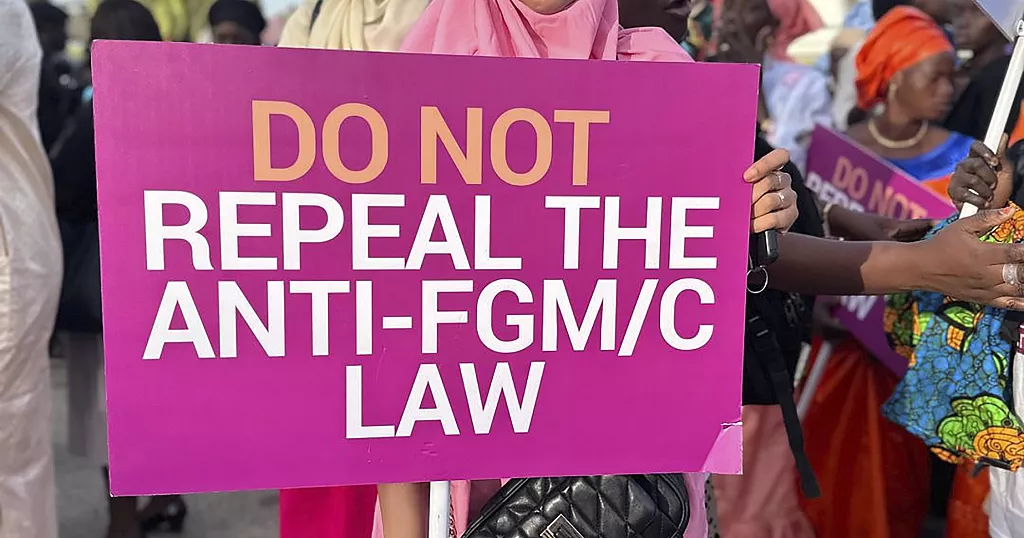After months of intense debate and international pressure, Gambian lawmakers have decided to uphold the 2015 ban on female genital mutilation (FGM), rejecting a contentious bill that aimed to overturn the existing law.
The Women’s (Amendment) Bill 2024, which aimed to legalise the practice of female circumcision, went through a second reading in March. Out of 53 lawmakers, only five voted against it, sparking concerns among rights groups that the Gambia could be the first country to reverse a ban on this practice.
The proposed legislation has sparked significant controversy within the predominantly Muslim West African nation.
Almameh Gibba, the bill’s sponsor, argues that “female circumcision” is an ingrained cultural and religious practice. However, opponents, including anti-FGM advocates and international human rights organisations, contend that it constitutes a harmful infringement upon the rights of women and girls.
The significant 2015 prohibition on FGM rendered the practice punishable with a maximum of three years’ imprisonment.
A majority of lawmakers on Monday rejected each of the bill’s clauses before a third and final reading, prompting Speaker Fabakary Jatta to stop the bill from progressing to the final reading.
“The bill is rejected, and the legislative process exhausted,” Jatta said.

The practice of female genital mutilation (FGM) includes the partial or complete removal of the external female genitalia or other harm to the female genital organs. This harmful practice can result in severe health issues such as infections, bleeding, infertility, and complications during childbirth.
According to 2024 statistics from UNICEF, the Gambia ranks among the top 10 countries with the highest prevalence of FGM, with 73 per cent of women and girls aged 15 to 49 having undergone the procedure.


